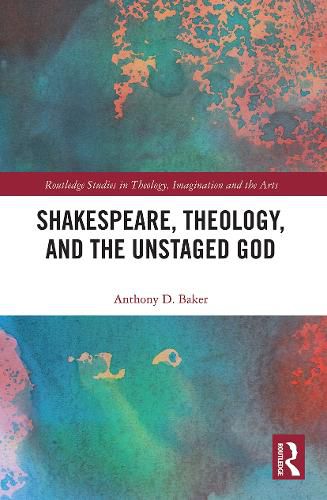Readings Newsletter
Become a Readings Member to make your shopping experience even easier.
Sign in or sign up for free!
You’re not far away from qualifying for FREE standard shipping within Australia
You’ve qualified for FREE standard shipping within Australia
The cart is loading…






While many scholars in Shakespeare and Religious Studies assume a secularist viewpoint in their interpretation of Shakespeare’s works, there are others that allow for a theologically coherent reading. Located within the turn to religion in Shakespeare studies, this book goes beyond the claim that Shakespeare simply made artistic use of religious material in his drama. It argues that his plays inhabit a complex and rich theological atmosphere, individually, by genre and as a body of work.
The book begins by acknowledging that a plot-controlling God figure, or even a consistent theological dogma, is largely absent in the plays of Shakespeare. However, it argues that this absence is not necessarily a sign of secularization, but functions in a theologically generative manner. It goes on to suggest that the plays reveal a consistent, if variant, attention to the theological possibility of a divine presence mediated through human wit, both in gracious and malicious forms. Without any prejudice for divine intervention, the plots actually gesture on many turns toward a hidden supernatural actor , or God.
Making bold claims about the artistic and theological of Shakespeare’s work, this book will be of interest to scholars of Theology and the Arts, Shakespeare and Literature more generally.
$9.00 standard shipping within Australia
FREE standard shipping within Australia for orders over $100.00
Express & International shipping calculated at checkout
While many scholars in Shakespeare and Religious Studies assume a secularist viewpoint in their interpretation of Shakespeare’s works, there are others that allow for a theologically coherent reading. Located within the turn to religion in Shakespeare studies, this book goes beyond the claim that Shakespeare simply made artistic use of religious material in his drama. It argues that his plays inhabit a complex and rich theological atmosphere, individually, by genre and as a body of work.
The book begins by acknowledging that a plot-controlling God figure, or even a consistent theological dogma, is largely absent in the plays of Shakespeare. However, it argues that this absence is not necessarily a sign of secularization, but functions in a theologically generative manner. It goes on to suggest that the plays reveal a consistent, if variant, attention to the theological possibility of a divine presence mediated through human wit, both in gracious and malicious forms. Without any prejudice for divine intervention, the plots actually gesture on many turns toward a hidden supernatural actor , or God.
Making bold claims about the artistic and theological of Shakespeare’s work, this book will be of interest to scholars of Theology and the Arts, Shakespeare and Literature more generally.